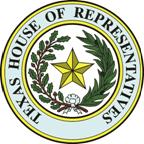A
Microsoft Word version of this letter is available for download
and PRINTING. |
|
REP. CHARLIE HOWARD AND REP. WARREN CHISUM Dear Superintendents and School Board Trustees of Texas: As the legislative joint-authors of the Religious Viewpoints Antidiscrimination Act (“RVAA”) which received overwhelming bipartisan approval of 108-28 in the House and 27-3 in the Senate, we have been asked to address some issues regarding RVAA’s model policy (“Model Policy”). RVAA requires all districts to “adopt and implement a local policy regarding a limited public forum and voluntary student expression of religious viewpoints” and states that “if a school district voluntarily adopts and follows the model policy…the district is in compliance with the provisions of this subchapter covered by the model policy.” The Model Policy underwent the legislative scrutiny of debate and hearings before the Senate Education Committee and House State Affairs Committee, and, as State law has the imprimatur of the Texas Legislature, Governor, and thus the citizens of Texas. If a school district adopts and follows RVAA’s Model Policy, the district is deemed to be in compliance with RVAA. This is the only way a district can have this assurance—and that’s one less worry for the district. Furthermore, since the Attorney General defends legislation, and the Model Policy is a part of this legislation, adoption of the Model Policy should assure a district the assistance of the Attorney General in the event of a facial challenge to the district’s adopted Model Policy. While a district is free to have an outside group or person draft a different policy, that district will have no assurance that it is in compliance with RVAA and will be on its own to defend that policy against legal challenges to its lawyer’s experimentations. The Legislature has not granted any person or organization rule making authority to, inter alia, add definitions outside of or contrary to the clear language, intent, and legislative history of RVAA or to narrow or change its applicability or efficacy in any manner. Some schools have inquired about the TASB “alternative sample policy” (“TASB Policy”) and similar alternative policies. The TASB Policy significantly deviates from RVAA’s Model Policy. TASB adds definitions outside of RVAA, which are not in the text of RVAA, and which conflict with the clear words, meaning, and legislative history of RVAA. The definitions added by TASB have the effect of narrowing and restricting the applicability of RVAA. As one example, TASB’s newly added definition of “to publicly speak” is as follows: “For purposes of this policy, ‘to publicly speak’ means to address an audience at a school event using the student’s own words. A student is not using his or her own words when the student is reading or performing from an approved script, is delivering a message that has been approved in advance or otherwise supervised by school officials, or is making brief introductions or announcements.” This narrow definition invites schools to avoid application of RVAA by simply requiring that everything spoken by a student over a microphone (or otherwise) first be “approved in advance” and/or be “supervised by school officials” and/or be deemed as “brief introductions or announcements.” Since all student introductions and speeches are “supervised by school officials” and since a school could begin requiring that all student introductions and speeches be reviewed and “approved in advance,” application of RVAA could be entirely avoided. The text of RVAA (Section 25.152) demonstrates that “publicly speak” finds broad definition via the first part of the sentence as whenever something is “publicly stated” by a student. Had the Legislature intended to include these additional restrictions before a student could voluntarily express a religious viewpoint without discrimination, the Legislature would have written them into RVAA. Similarly, TASB adds a narrowing definition to “school event” although “opening announcements and greetings for the school day,” “football games,” “other athletic events,” “assemblies,” “pep rallies,” and the like, are, at a minimum, “school event[s]” under RVAA. These deviations from RVAA seem to be driven by a basic misunderstanding of the distinction between “topic/subject” (which schools retain authority to set) and “viewpoint.” There are additional parts of the TASB policy and information provided by TASB regarding RVAA which we believe to be inaccurate and incomplete. For these and other reasons, it is our opinion that adoption of the TASB Policy, and similar policies following the TASB model, will put school districts in violation of RVAA. Separately, after RVAA’s enactment, the Supreme Court decided Morse v. Frederick which added a new prohibition against “speech promoting illegal drug use.” This would have been in the Model Policy if decided earlier. It is our intent that districts may add this new prohibition to their policy and continue to be within the Model Policy as being “substantially identical.” RVAA’s Model Policy was intended to make it easy and inexpensive for schools to comply with the law. It is our hope that districts will adopt and follow RVAA’s Model Policy as the safest, least expensive, and only sure way to know they are in compliance with all aspects of RVAA.
Representative Charlie Howard Representative Warren Chisum Chairman, Local and Consent Calendars Chairman, Appropriations
|

